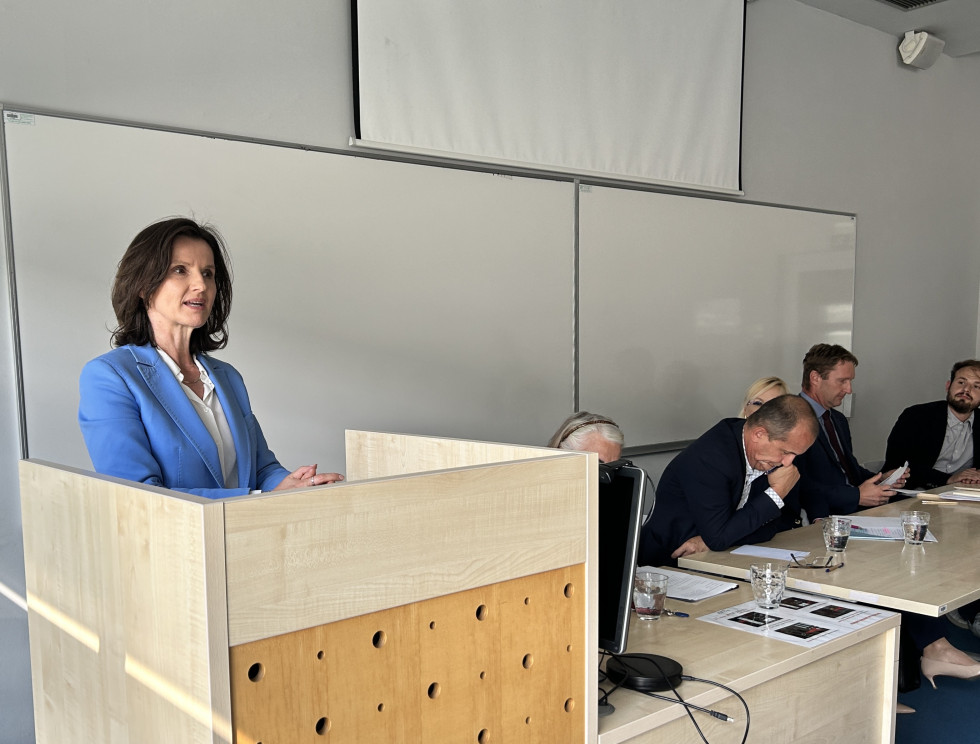State Secretary Gabrič at the round table marking the 50th anniversary of the Helsinki Final Act

State Secretary Melita Gabrič addressing the round table | Author MZEZ
"Even in today's challenging geopolitical environment, this milestone serves as a reminder that the commitments and principles of the Organization for Security and Co-operation in Europe remain as relevant and crucial today as they were five decades ago, despite the new and complex challenges we face," she emphasised, adding that upholding these commitments and principles is vital for maintaining an international order based on international law and for strengthening democratic institutions. "Today's discussion provides an opportunity to reflect on the OSCE's role in the European security architecture in light of the gross violations of the principles established by the Helsinki Final Act," she said.
A stable and secure environment facilitates the protection of human rights, the rule of law and social and political inclusion, key components of a functioning democracy. The OSCE's work in conflict prevention, election monitoring and building democratic resilience reinforces this important relationship between security and democracy.
Slovenia is deeply committed to this security architecture and remains a staunch advocate of effective multilateralism. We firmly believe that security challenges can only be addressed through dialogue, cooperation and respect for international law. The OSCE's role in promoting trust and the peaceful settlement of disputes aligns with Slovenia's vision for a secure and democratic world.
The Helsinki Final Act, signed on 1 August 1975, made a significant contribution to overcoming ideological divisions in Europe and established ten principles of peaceful coexistence, which set the basic standards for relations between countries. To this day, European security and cooperation is based on these standards.
As the first international institution Slovenia has joined following its independence (24 March 1992), the OSCE holds particular significance for Slovenia and made an important contribution to its international recognition as an independent state. Slovenia also held the OSCE Chairmanship in 2005.
The round table, moderated by Dr Faris Kočan, Chair of International Relations at the Faculty of Social Sciences, was also attended by Dr Iztok Prezelj, Dean of the Faculty of Social Sciences; Dr Ljubica Jelušič, Chair of Defence Studies at the Faculty of Social Sciences; Dr Zlatko Šabič, International Relations Adviser to the President of the Republic of Slovenia; and Ms Melita Župevc, Head of the Permanent Representation of the Republic of Slovenia to the UN, OSCE and Other International Organisations.

